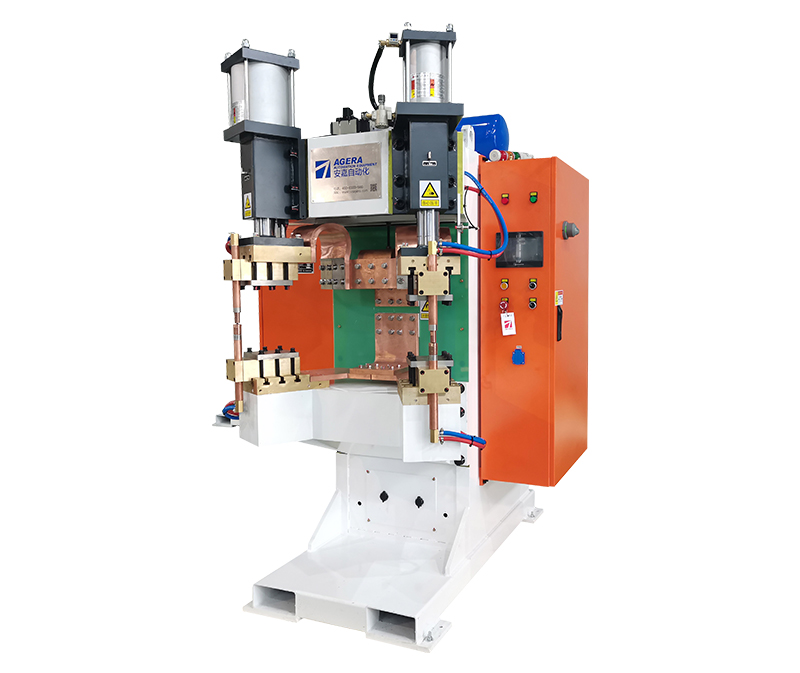Safety is of paramount importance in nut welding machine operations to protect operators, prevent accidents, and maintain a safe working environment. This article provides an overview of safety measures and precautions that should be followed to ensure the safe and effective use of nut welding machines. By implementing these safety guidelines, operators can minimize risks, prevent injuries, and create a secure workplace environment.
- Operator Training and Certification: All operators should receive comprehensive training on the proper operation of nut welding machines. Training programs should cover topics such as machine setup, safe operating procedures, emergency protocols, and maintenance guidelines. Additionally, operators should possess the necessary certifications or qualifications to handle welding equipment safely.
- Personal Protective Equipment (PPE): Wearing appropriate personal protective equipment is essential to protect against potential hazards. Operators should wear safety goggles, face shields, welding helmets, flame-resistant clothing, gloves, and safety shoes to safeguard themselves from sparks, heat, and other welding-related risks. Regular inspection and replacement of damaged or worn-out PPE should also be emphasized.
- Machine Inspection and Maintenance: Regular inspection and maintenance of nut welding machines are critical to ensure their safe and efficient operation. Operators should inspect the machine’s components, electrical connections, cooling systems, and safety features before each use. Any abnormalities, malfunctions, or damages should be immediately reported to the maintenance team for prompt repair or replacement.
- Fire Prevention: Due to the heat generated during welding, fire hazards can arise. Adequate fire prevention measures should be implemented, such as keeping the work area free from flammable materials, providing fire extinguishers, and ensuring proper ventilation to dissipate fumes and gases.
- Proper Grounding: Proper grounding of the welding machine is essential to prevent electrical shocks and ensure the safety of operators. Adequate grounding should be established according to local regulations and standards.
- Emergency Procedures: Operators should be well-versed in emergency procedures and protocols. This includes knowing the location of emergency stop buttons, fire alarms, and evacuation routes. Regular emergency drills and training sessions should be conducted to prepare operators for potential accidents or hazards.
- Continuous Monitoring: During welding operations, constant monitoring of the equipment and work area is crucial. Operators should remain alert, vigilant, and focused on their tasks, promptly addressing any abnormalities or safety concerns that arise.
Ensuring safety and preventing hazards in nut welding machine operations is paramount to protect operators, maintain a secure working environment, and prevent accidents. By following proper safety guidelines, including operator training, PPE usage, machine inspection and maintenance, fire prevention measures, grounding procedures, and emergency protocols, operators can minimize risks and create a safe working environment. Emphasizing safety measures not only protects individuals but also contributes to enhanced productivity and overall operational efficiency in nut welding processes.
Post time: Jul-17-2023








